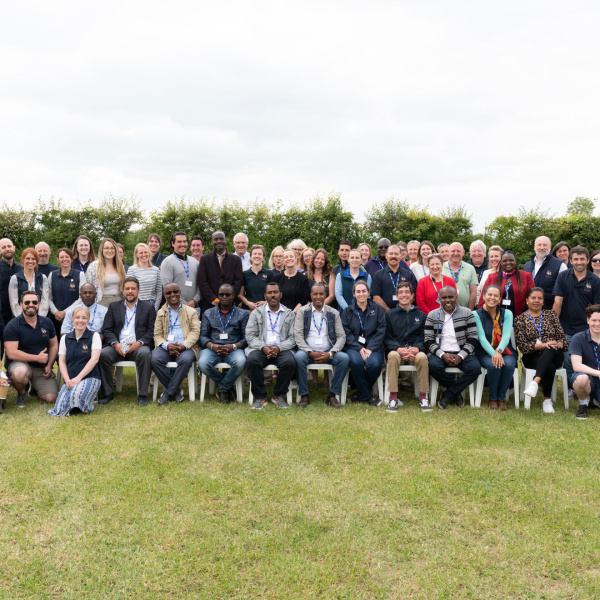World authorities on donkey welfare gathered in Devon last month for The Donkey Sanctuary’s first post-Covid meeting, including teams from the five regions it works in across the globe.
More than 100 staff representing countries as far afield as Ethiopia, Mexico and Nepal came to share knowledge and expertise, all with a common aim: to work together to realise The Donkey Sanctuary’s vision of a world where every donkey has a good quality of life.
Earlier this year, the charity launched its ambitious new strategy, with a plan to positively impact the lives of five million donkeys over the next five years. Bringing international teams together for a week of rich learning and collaboration acknowledges the global effort this requires. It was also an opportunity for colleagues to meet face-to-face, many for the first time, and to know and feel they are part of one organisation.
Representatives supporting work in East, West and southern Africa, South Asia and Latin America, as well as the Caribbean, spoke of the common challenges facing donkeys and the communities that rely on them: poverty, climate change, water scarcity and gender disparity. Many spoke of the importance of donkeys to women and children who can be reduced to hard labour without support from their working animals.
Over the course of five days, vets, equine experts, researchers and programme staff from the UK and around the world shared their expert knowledge, insights and best practice. Sessions included how to manage end of life care safely and legally, the introduction of a sanctuary-wide scorecard to measure welfare, working with governments to improve animal welfare legislation and mitigating the impact of climate change.
As well as gaining insights from around the world, staff attended technical workshops informed by the latest, evidence-based best practice and knowledge gained over 50 years of improving donkey welfare.
Marianne Steele, CEO of The Donkey Sanctuary, said: “This was a chance for our colleagues from all over the world to come together and share their considerable knowledge and expertise at the forefront of donkey welfare. We are better equipped than ever in our mission to improve the lives of donkeys every day.
“For too long donkeys and mules have been hidden in plain sight: in degraded environments hit by drought and natural disasters, they fetch water, deliver aid and provide a living for some of the most marginalised communities on earth.
“We need donkeys, and we need evidence-based solutions to protect them, the communities they support and the environments in which they all live.”
Another recurrent theme was the challenge posed by the international skin trade. This brutal and inhumane trade sees millions of donkeys around the world trafficked and slaughtered for their skins every year to produce a Chinese medicine called ejiao.
The charity reiterated its commitment to continue efforts to disrupt and ultimately end the trade, which is increasingly linked to other wildlife trafficking, international crime and biosecurity threats.
For interviews, images and information please contact The Donkey Sanctuary press office on 01395 573124 or 07870 849563 (including out of hours) or send an email.
The Donkey Sanctuary is the world's largest equine welfare charity. Our vision is a world where donkeys and mules live free from suffering and their contribution to humanity is fully valued. We run 10 sanctuaries around the UK and Europe, giving lifelong care to more than 7,000 donkeys and mules. Our hospital treats sick donkeys and trains vets both nationwide and worldwide. Our donkey-facilitated learning programme helps vulnerable children and adults develop life skills by connecting with donkeys on an emotional and physical level. The charity operates programmes worldwide for animals working in agriculture, industry and transportation, and those used in the production of meat and skin.
Please note that the name ‘The Donkey Sanctuary’ should not be abbreviated to ‘Donkey Sanctuary’, and the word ‘The’ should always appear with a capital ‘T’ as above.
